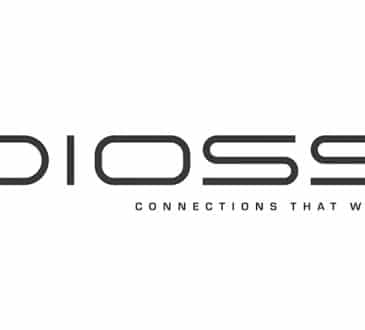The Biggest Business Mistakes in a Recession

The most common mistake businesses make in recessionary times is failing to plan their post-recession strategy
Many leaders look back at 2007 through 2009 as a tough time to be in business. But 2010 was even harder.
We were emerging from The Great Recession sparked by the housing and subprime mortgage crisis. Just as quickly as the market bottomed out, there was suddenly an influx of competition and start-ups. I was working with a technology consulting firm helping founders, corporations, and private equity firms manage what was to come next.
All of those clients had “done the right things” throughout the recession. They had zeroed in on the essentials, cut budgets, laid off staff and proverbially battened down the hatches. But as they emerged post-recession, most struggled to recognize the world they were re-entering. “Disruption” was the new normal.
These were their mistakes — and with proper planning, here’s how to avoid the pitfalls as we approach a recession.
Mistake 1: Maintaining an “all or nothing” pricing model
In all industries, consumers are tightening their belts. Maintaining—or in some cases migrating—to an “all or nothing” pricing model forces otherwise loyal customers to look elsewhere. (And believe me, those options will suddenly start popping up.)
Many thought it was a bad move when Netflix floated the idea of an ad-supported low-cost subscription fee a few months ago. Today, it looks like a stroke of brilliance. Netflix has given their increasingly budget-conscious customers a choice to stick with the brand at a lower price while making up the revenue through advertising. It has also lowered the entry point for new customers.
If low-tier pricing strategies aren’t an option, experiment with ways to package multiple offerings into bundles. Or give more leeway to custom deals that aren’t discounting your core product but allow customers to save on ancillary services or features in exchange for new business or longer commitments.
Mistake 2. Ignoring the data
The worst part about managing a recession is not knowing when it will end. That unpredictability means it’s critical to understand where you’re at so you can change course quickly. Many clients I worked with suffered when budgets were cut during the recession, and then there was no funding to compete or maintain parity with existing competition post-recession.
Getting your program management team ready now is vital since ongoing analysis will be critical as you navigate through and ultimately out of a recession. This includes clear roadmaps and continuous insight reports to identify when to change course with your investments as soon as you can.
Although they’re still necessary, don’t overemphasize ultimately unhelpful metrics for throughput, like development stories completed per month. Instead, integrate outcome tracking, product trials, market and UX research, and DevOps Research and Assessment (DORA) into your readouts for a confident drip of information to stay in control of investments and ensure successful releases.
Mistake 3. Laying off your research group
Although a small component of an organization’s team, the worst thing you can do is divest in your research department. A recession brings unknowns and opportunities, making researchers your company’s “canary in the coal mine.”
Whether they’re market or UX-focused, research leaders will need to shift their standard ways of working to prioritize efforts focusing on short and medium-term insights and product validation. This can be done by funding many smaller-sized studies and efforts instead of fewer, longer-term discovery projects.
Mistake 4: Assuming innovation can be turned off and on
Many companies struggled to come out of The Great Recession because they had completely shut off the innovation pipeline. In 2010, they found themselves scrambling to secure funding and recruit new talent to restart whole programs.
They learned the hard way that innovation isn’t a binary lever that can be suddenly switched back on when economic climates improve. The better way to picture innovation is a dial that can be turned up or down in response to market conditions.
Thinking about innovation as a continuous activity versus a single initiative is critical because if you enter into a recession unprepared for its end, you could find yourself in a situation where you’re left behind.
This is also why recessions are notably great times for start-ups to disrupt markets. Start-ups that secured funding before the recession have the flexibility to develop new and complex offerings while simultaneously being aggressive with pricing models that attract customers trying to balance tight budgets.
Don’t forget that a start-up only needs a few percentage points of an incumbent’s business to be successful. So if you’re not doing at least some innovation to retain and grow your customer base, a recession is an easier time for small companies to come in and secure a foothold.
Written by John Jarosz.
Have you read?
A Whole New World? Dealing With Office Space Decisions in the Current Landscape by Andrew Flint.
3 Ways You Can Excel As A Leader In 2023 by Dr. Samantha Madhosingh.
The Top Issue Your Company Should Be Focused On For 2023 by Brittany Hodak.
5 Essential Factors for Finding the Way in Your New Business by Jon Hutson.
Add CEOWORLD magazine to your Google News feed.
Follow CEOWORLD magazine headlines on: Google News, LinkedIn, Twitter, and Facebook.
Copyright 2024 The CEOWORLD magazine. All rights reserved. This material (and any extract from it) must not be copied, redistributed or placed on any website, without CEOWORLD magazine' prior written consent. For media queries, please contact: info@ceoworld.biz








